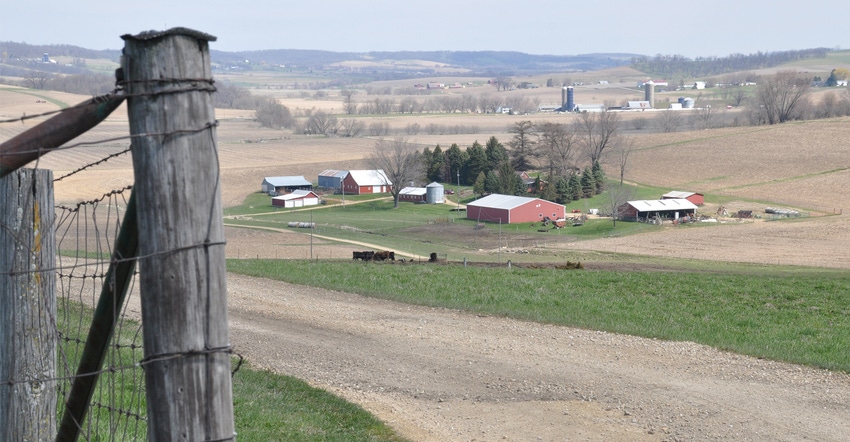October 27, 2020

We spill a lot of ink in Prairie Farmer (and excite a lot of electrons in the online edition) addressing taxes in estate planning. That’s because tax planning is important. Just recently, the taxing authorities confirmed to my office that a $26 million farm has safely passed to the next generation with no transfer (gift or estate), capital gain or income tax. Without careful tax planning, the heirs would have lost hundreds of acres. Instead, 100% of this farm stayed in the family and will remain exempt from transfer taxes as it passes to future generations.
In terms of wishes, everyone wishes they could transfer their estates without estate tax. If your farm is worth less than $4 million, transfer taxes are not an issue — at least under current law; no one knows what the newest politicians will do. With relatively simple trust planning, a married couple can transfer twice that much.
If your estate is worth less than the estate-tax-exempt amount, your tax-free transfer wish is granted. What more is there to do? Your estate plan (whether written with a will or living trust, the latter being the more modern and flexible tool) can do a lot of good. Or, it can do virtually nothing.
What good?
There are three major life risks that people face with respect to their estates. Every day, somewhere, a panicked person rushes to an attorney and asks, “Is there anything I can do to protect my assets?”
From what? We could summarize these risks as catastrophic creditors, catastrophic marriages and catastrophic health needs. Let’s say the panicked individual was in an accident and expects to get sued for everything he or she is worth. Or, their marriage has hit the rocks and the handwriting on the wall predicts loss of half the farm. Or, late in life they realize that nursing home expenses may wipe out what they have.
There are only limited things you can do to protect your own assets from these risks, and I am not addressing that today. But as you look ahead to the future of the farm in the hands of those you will leave it to, careful plans can insulate the farm — whatever you give your children — from those catastrophes in their lives.
A short-sighted estate plan says, “Upon my death, divide the farm and give each of my three children a share.” As of your death, your farm will be exposed to the risks of lawsuit, divorce and nursing home costs. From then on, if any child gets sued, at least his or her share of the estate can be taken. If the children co-own the inherited farm, the lawsuit against one child can even force a sale of the whole farm.
Don’t you wish you could do something to help protect the farm?
You can, of course. Consider a plan that says, “Upon my death, create a trust for the benefit of each child, and divide my farm among those trusts.” What sort of trusts would these be? Each child can be given control of their own part. But the ownership in a trust established by you for them will protect the farm from their life risks. Lawsuit against the son? Won’t touch the inheritance. Daughter gets a divorce? Her ex can’t reach the farm. Your child, later, needs nursing home care? The property doesn’t have to be “spent down.”
As soon as you consider the idea of a trust for each child, questions arise. For example, a common misconception is that the income taxes for your child will be higher because of the trust, but that is a myth. More questions might be:
1. Does the trust tie up the farm? Only if you want to add restrictions. But a trust can protect the inheritance from catastrophes without tying the heirs’ hands.
2. Can the heir use the land as collateral to buy more land? Yes, in a way that grows the protected wealth.
3. Can the heir sell out entirely? Yes, unless you expressly prohibit it.
4. Can the heir control where the inheritance will pass in the future? Yes, again, unless you feel a need to control and limit them.
If you choose to use trusts to restrict the heirs, that is one way to achieve your long-term wishes. If you trust your heirs to carry on your legacy, then give them the protective trusts to help them defend the farm against potential catastrophes. If you don’t, your heirs may someday wish you had.
Ferguson is an attorney who owns The Estate Planning Center in Salem, Ill. Learn more at thefarmersestateplanningattorneys.com. The opinions of this writer are not necessarily those of Farm Progress/Informa.
About the Author(s)
You May Also Like






